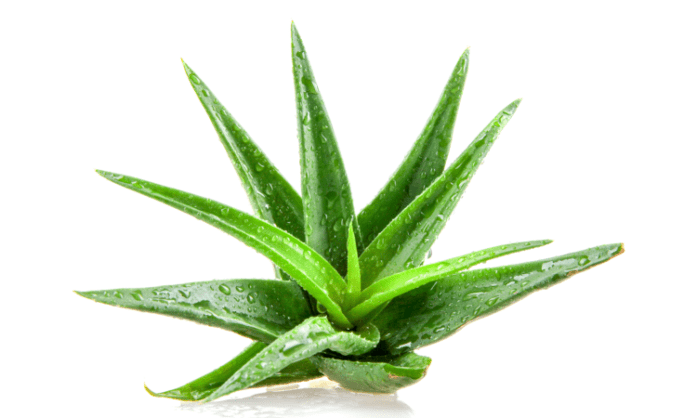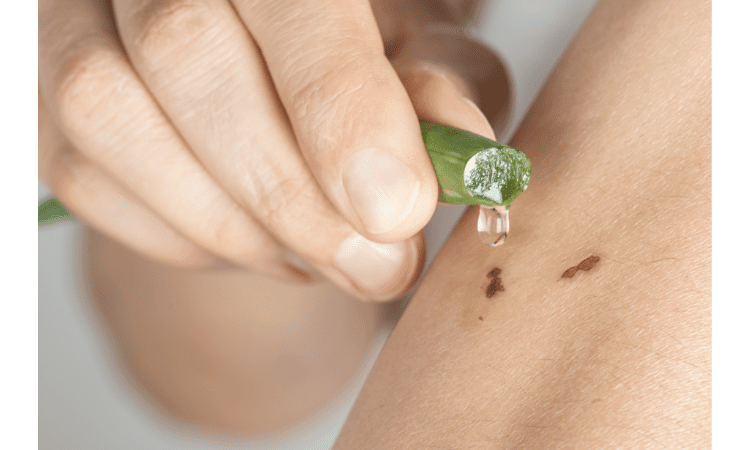
Aloe vera has been used for centuries as a medicinal plant. It helps treat skin conditions such as eczema, burns, and psoriasis. The leaves of the plant are filled with a clear gel that’s soothing to the skin. There are also anti-inflammatory properties in aloe vera that can help relieve pain and inflammation in joints. Aloe vera is also said to have numerous benefits internally, such as reducing cholesterol or helping with digestive issues like IBS or heartburn.
It contains healthful plant compounds
Aloe vera contains vitamins, minerals and phytonutrients. It is rich in vitamin C which has antioxidant properties that can help fight free radicals. It also contains numerous vitamins, such as A, B-complex and E; minerals like calcium, copper and magnesium; amino acids such as histidine and lysine; fatty acids like linoleic acid (omega-6); essential fatty acids like linolenic acid (omega-3) and gamma-linolenic acid (GLA).
The best part about using aloe vera is that it’s safe for all skin types including sensitive skin because it doesn’t contain any chemicals or artificial coloring agents.
It has antioxidant and antibacterial properties

Aloe vera has antioxidant and antibacterial properties. Antioxidants are compounds that can help protect your body from the effects of free radicals, which can cause inflammation and harm your cells. Antibacterial properties can help kill bacteria; one of the most common uses for aloe vera is as a natural remedy for minor cuts, scrapes and burns because it contains chemicals that fight off infection.
It accelerates wound healing

Aloe vera is a natural anti-inflammatory and helps wounds heal faster. It reduces the swelling, redness, and irritation that often accompany cuts or burns. Aloe vera gel might also be effective in treating eczema.
It’s a natural antibiotic with antibacterial properties that help fight infection in minor cuts and scrapes. The gel from aloe leaves contains more than 75 compounds including vitamins A, C, E and B6 as well as minerals like calcium, magnesium and iron. These nutrients aid in wound healing by promoting the growth of new skin cells after an injury or infection has been treated with antibiotics or antiseptics such as hydrogen peroxide (H2O2).
It reduces dental plaque

Aloe vera contains a compound called lignin, a natural antiseptic. Lignin is found in the pulp of the aloe vera leaf. It helps to reduce the growth of dental plaque, making it a great natural preservative that can prevent bacteria from forming on your teeth. You can also use aloe vera gel as a mouthwash to keep your breath fresh and clean, especially after eating or drinking something acidic or spicy.
It helps treat canker sores

Aloe vera is one of the best ways to treat canker sores, especially if you want to avoid using oral medication. It can be applied directly to your sore and gently rubbed in with a cotton swab or Q-tip. The aloe vera will help soothe the pain, reduce inflammation and speed up the healing process. It also works well with other treatments, like applying ice packs or taking over-the-counter painkillers.
If you don’t want to do anything else but eat some aloe vera gel every day until your mouth feels better, that’s fine! Just make sure you get enough rest so that extra sleep doesn’t aggravate any other existing health issues (like high blood pressure).
It reduces constipation

The gel from the aloe vera plant can be used to treat constipation by mixing it with water and drinking it. It can also be applied directly to the skin for faster absorption. This can help with hemorrhoids, ulcerative colitis and irritable bowel syndrome.
Aloe vera juice has been shown to reduce inflammation in the colon and relieve pain caused by IBS (Irritable Bowel Syndrome).
It may improve skin and prevent wrinkles

Aloe vera may be useful in treating acne, as it contains salicylic acid, which is a natural oil with antibacterial properties. In addition to being beneficial for acne, aloe vera gel can help moisturize and improve the appearance of your skin. It’s also been shown to help reduce fine lines and wrinkles as well as the appearance of scars. Aloe vera gel has been found to be an effective treatment for eczema in clinical studies.
In addition to these listed benefits, aloe vera may also improve the overall health of your skin by hydrating it and replenishing its natural oils (makeup-free days will thank you). It’s also worth noting that using an aloe vera product on your face could potentially make it more sensitive than usual; if this happens, then switch up your routine for a bit before continuing use again!
It lowers blood sugar levels

Aloe vera contains polysaccharides, which have been shown to lower blood sugar levels. These polysaccharides also increase insulin sensitivity, so they’re great for people with diabetes and can help prevent type 2 diabetes as well.
People with type 1 diabetes may benefit from aloe as well. Studies show that aloe helps keep blood glucose levels stable in people with type 1 diabetes, which is extremely important for maintaining their health.
Conclusion
We have examined some of the most popular uses for aloe vera, and provided examples of how it can be incorporated into your daily life. The point is that this plant has many health benefits, which are sometimes overlooked for its cosmetic uses. Though aloe vera works well as a skin treatment, we want to encourage people to consider its other applications as well! We believe that if you do your own research and find out more about the advantages of using aloe vera gel on your skin or drinking it in juice form, you’ll discover what we already know: that this plant is an excellent product to add into any healthy lifestyle routine.











